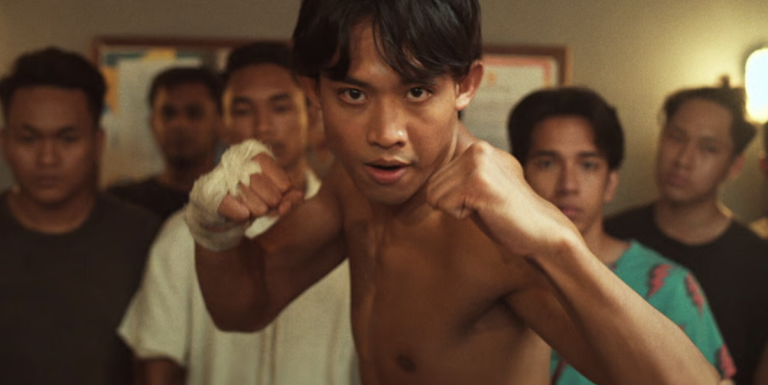
Drama Exposes Endemic Bullying and Gangsterism in Malaysian Elite Institutions, Echoing Real Traumas Across Southeast Asia

New York, N.Y. – In the heart of Malaysia’s educational landscape, where prestigious boarding schools promise academic excellence and character building, a darker narrative often lurks beneath the surface. Netflix’s gripping series Projek: High Council, released in 2023 with English subtitles, thrusts viewers into this shadowy realm, portraying a world rife with bullying, hierarchical power struggles, and deep-seated traumas.
Directed by Kabir Bhatia and starring a ensemble of young Malaysian talents, the show follows Fakhri, a determined student who uncovers the secrets of his school’s entrenched traditions, making themselves a prime target for those vying for positions in the elite “High Council.” As Fakhri navigates the clandestine “Pilihanraya” tournament—a brutal contest to select the school’s head—the series unflinchingly depicts the physical and psychological toll of institutionalized violence.
The production, available on Netflix globally, has resonated far beyond Malaysia, drawing parallels to real-life accounts from boarding schools across Southeast Asia. Drawing from authentic Malaysian stories, Projek: High Council highlights issues like verbal abuse, physical beatings, and even sexual assault, which affect an alarming number of students.
According to studies referenced in discussions around the series, approximately 10% of Malaysian students experience sexual harassment or assault in school settings. This fictional yet grounded narrative serves as a mirror to societal ills, prompting viewers to confront the normalized culture of ragging and dominance that persists in many elite institutions.
The Plot: A Battle Against Entrenched Traditions
At the core of Projek: High Council is Fakhri, portrayed by Amir Ahnaf, who arrives at a renowned boarding school only to discover a rigid hierarchy enforced by the “High Council”—a group of senior students wielding unchecked power. The council perpetuates a cycle of bullying disguised as tradition, where newcomers endure humiliating initiations and brutal punishments to prove their worth. Fakhri’s decision to expose these secrets propels the story into a high-stakes drama, blending elements of action, crime, and psychological thriller.
Supporting characters add layers to the narrative. Naim, played by Naim Daniel, grapples with family-induced anger issues stemming from parental divorce, manifesting in toxic behaviors that fuel the school’s aggressive environment. Other key figures include Muzayyin Mahyuddin as a conflicted ally and Fazziq Muqris as a formidable antagonist within the council. Across its ten episodes, the series builds tension through intense fight scenes in the underground “Pilihanraya” arena, where students vie for leadership through physical prowess and cunning strategy.
What sets the show apart is its refusal to glamorize violence. Instead, it explores the psychological ramifications, showing how bullying leads to isolation, anxiety, and long-term mental health struggles. Episodes delve into backstories, revealing how childhood traumas and societal pressures contribute to the perpetuation of these cycles. For instance, one storyline illustrates a student’s panic attacks triggered by familial abandonment, underscoring the intersection of home life and school dynamics.
Real-Life Echoes: Bullying as a Normalized Ordeal
The series’ portrayal is not mere fiction; it draws heavily from documented realities in Malaysian boarding schools, where bullying has been normalized for decades as a rite of passage. Recent tragedies, such as the 2025 death of 13-year-old Zara Qairina Mahathir, have spotlighted this issue. Zara allegedly endured severe physical and verbal abuse at her boarding school, leading to widespread outrage and calls for reform. Her case involved seniors threatening to break her legs, a chilling echo of the ragging depicted in Projek: High Council.
Alumni stories further illuminate the problem. One former student recounted enduring extreme physical abuse from seniors, including beatings and forced humiliations, in a fully residential school. Such experiences are common, with research indicating that speaking out against bullying is often viewed as unsporting, perpetuating a culture of silence. UNICEF reports from 2017 highlighted fatal bullying incidents in Malaysia, including the deaths of students like T. Nhaveen and Zulfarhan Osman, underscoring the lethal potential of unchecked aggression.
Issue Extends Beyond Malaysia to Neighboring Countries
In Thailand, boarding school students have shared accounts of bullying based on social class or appearance, with physical assaults affecting academic performance and mental health. One narrative described a student facing constant harassment over family wealth, leading to isolation and hindered learning. Similarly, in the Philippines, statistics reveal that 65% of students experience bullying at least monthly, with 40% facing it weekly. Personal testimonies highlight how physical abuse at home exacerbates school vulnerabilities, creating a compounded trauma.
Individuals from Southeast Asia who attended boarding schools in Thailand, Malaysia, and the Philippines have described horrific conditions, including relentless physical and emotional torment that left lasting scars. These accounts often emerge only in moments of vulnerability, revealing environments where authority figures turned a blind eye to preserve institutional reputation.

Toxic Masculinity and Generational Trauma
A poignant theme in Projek: High Council is the role of toxic masculinity in fueling school violence. Characters like Naim embody societal expectations that equate strength with dominance and emotional suppression. The series illustrates how such beliefs stem from troubled home lives, where parental roles challenge traditional gender norms—such as a stay-at-home parent perceived as weak.
This mirrors real psychological insights. In Malaysian boarding schools, bullying often reinforces hierarchical masculinity, with seniors exerting control through physical dominance. Psychological analyses note that victims may internalize these behaviors, perpetuating the cycle as they ascend the ranks. The show’s depiction of family divorce and abandonment adds depth, showing how external traumas amplify school conflicts, leading to issues like anger management and anxiety disorders.
Broader regional patterns align, with Thai and Philippine stories highlighting how bullying intersects with cultural pressures around status and resilience. In Thailand, rural students face ridicule for mixed heritage, while in the Philippines, familial physical discipline correlates with heightened school vulnerability.

Impact and Calls for Change
Since its release, Projek: High Council has sparked crucial conversations, with a 2024 prequel film Kahar: Kapla High Council expanding the universe to explore origins of key characters. Viewers praise its realism, with reviews noting that portrayals of ragging and assault closely align with actual experiences, raising awareness about overlooked problems in boarding schools.
The series’ global platform on Netflix amplifies these voices, encouraging reforms. In Malaysia, recent incidents have prompted government action, including investigations into Zara’s case and charges against alleged bullies. Advocates call for comprehensive anti-bullying policies, psychological support, and teacher training to dismantle these traditions.
Yet, challenges remain. Schools often prioritize reputation over student welfare, with parental and alumni pressures maintaining the status quo. Projek: High Council urges a reevaluation, portraying change as possible through individual courage and collective awareness.
As Southeast Asia grapples with these issues, the series stands as a catalyst, blending entertainment with advocacy. Its message is clear: the horrors of boarding school life must be confronted to foster safer educational environments for future generations.
Summary
Netflix’s Projek: High Council delves into the brutal world of Malaysian boarding schools, where bullying and gangsterism reign supreme. Inspired by true stories, the series follows student Fakhri’s fight against a powerful hierarchy, exposing verbal, physical, and sexual abuses. Echoing real traumas from alumni in Malaysia, Thailand, and the Philippines, it highlights toxic masculinity and family issues. This gripping drama calls for urgent reforms in elite education systems across Southeast Asia.